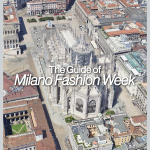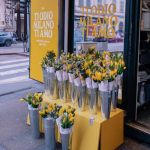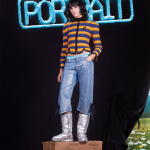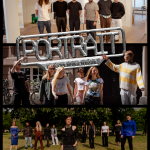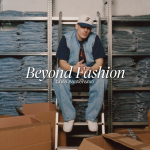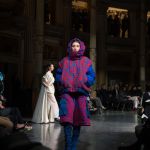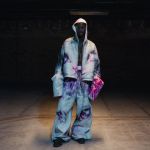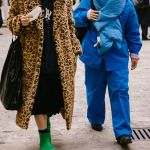
Fashion must change to survive: an interview with Drip Dossier
The insider account of the fashion industry tells us about the luxury world after the covid and its need for change
August 6th, 2020
In the huge cauldron of Instagram accounts dedicated to fashion, including suggestions on the right outfit and photos to flex the latest cop, Drip Dossier represents a wave of news for anyone who wants to appreciate the idea hidden behind a brand or garment. From the posts dedicated to Kanye West to the recent collaboration with Grailed, the Drip Dossier Instagram account has become a small encyclopedia of the fashion world, ranging between brands and creators in an investigation of a world in constant change.
For this reason, we decided to exchange some emails with Drip Dossier to understand the present and future of the industry after the covid, between Phygital and the need to reinvent a system.
How was Drip Dossier born?
Drip Dossier is a proposition to take a closer look at designs that often get digested too fast to appreciate the intention behind them. We are exposed to an overwhelming amount of beautiful work across fashion, architecture, industrial design and so on... As someone without a design-related background, I found it rewarding to slow down and research the context behind things.
The last few months have certainly not been positive for many brands, what is going on behind the scenes in the fashion world after the Covid-19 emergency?
There’s a been lot of changes in how fashion is presented since the pandemic start. On the positive side, there's innovation from brands being forced to ask themselves how they can show new work without relying on runway shows. The focus shifted to making the collection speak for itself in a widely accessible digital format, closing the gap between those who get to see the show in person and people who only see it online.
We can only hope that the void left by limited in-person access to clothes will be filled by things like 3D-Renderings (e.g. Undercover SS21), “Phygital” shows (e.g. Ermenegildo Zegna SS21), & AR (e.g. Chanel lenses).
Given the need to find a new way of existing on the web, is there any brand that is moving in a direction towards renewal?
When it comes to innovative digital experience, I’m most curious about the future of Yeezy Supply. A quick glimpse offered in the Nick Knight documentary shows how many aspects of online shopping can be transformed when you put over 10,000 hours into web development. A game-like environment with no text, 3D rendering of all clothes in motion, and of course characters you can dress up represented by real-life people making a difference in their communities. The concept is profound, combined with stripped-down visual execution to highlight the product.
This store idea is perfectly in tune with Ye’s vision of clothes as supplies, but I‘m excited to watch other brands take note and invest into the immersive future of e-commerce.
Should brands focus more on renewing the web experience to help sales? Is there a risk that someone underestimates this aspect?
In luxury, brands that traditionally avoided e-commerce to uphold an air of exclusivity saw that strategy backfire. Chanel predicts a two year long slump in sales, while LVMH competitors that were better positioned to shift volume online see a brighter future (LVMH stock is up an astonishing 49% since pandemic lows). Likewise, I’d expect the e-comm friendly Hermès to perform much stronger than Goyard, a fellow upper echelon of luxury brand that doesn’t have any online presence.
While online stores are more important than ever due to shut down of physical retail, ways to boost sales aren’t limited to web experience. After all, many luxury shoppers looking to buy a specific product that caught their attention won’t be stopped by a lack of e-commerce (as long as they can call an advisor to ship it to them from the store). We have yet to see how shows replaced by video presentations at Gucci, Dior and Louis Vuitton will play out in terms of sales, but I would expect brands to continue exploring alternative ways to make the product desirable in the new environment.
With sales down and brands still behind with renewal strategies, do you think there is a real risk of having to downsize or worse to stop?


























